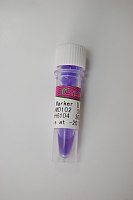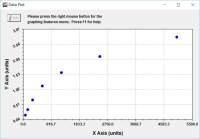REPSA: Combinatorial Approach for Identifying Preferred Drug-DNA Binding Sequences
互联网
285
Many DNA-binding small molecules, typically those with a molecular mass less than 1,000 g/mol, recognize duplex DNA with some degree of sequence specificity. These include drugs used to treat several human diseases, including viral and bacterial infections, malaria, and cancer. Determining the binding specificity of DNA-binding molecules can be important for their development, especially if they are being designed to target specific DNA sequences. A limited amount of information can be obtained through the study of small molecule binding to defined naturally occurring or synthetic DNA sequences; however, a full picture of a small molecule’s binding specificity can only be obtained through combinatorial means, whereby vast libraries of sequences are screened. Several combinatorial methods have been developed for the study of ligand-DNA interactions, but only one method, Restriction Endonuclease Protection Selection and Amplification (REPSA), is generally applicable to the study of native small molecule-DNA complexes under physiologic conditions. REPSA may be used with both covalent and noncovalent small molecule-DNA complexes and with mixtures of small molecules with relatively unknown identities and properties. Thus, REPSA is a powerful, versatile, general method for the combinatorial determination of small molecule-DNA binding specificity and a functional means for drug discovery and characterization.









